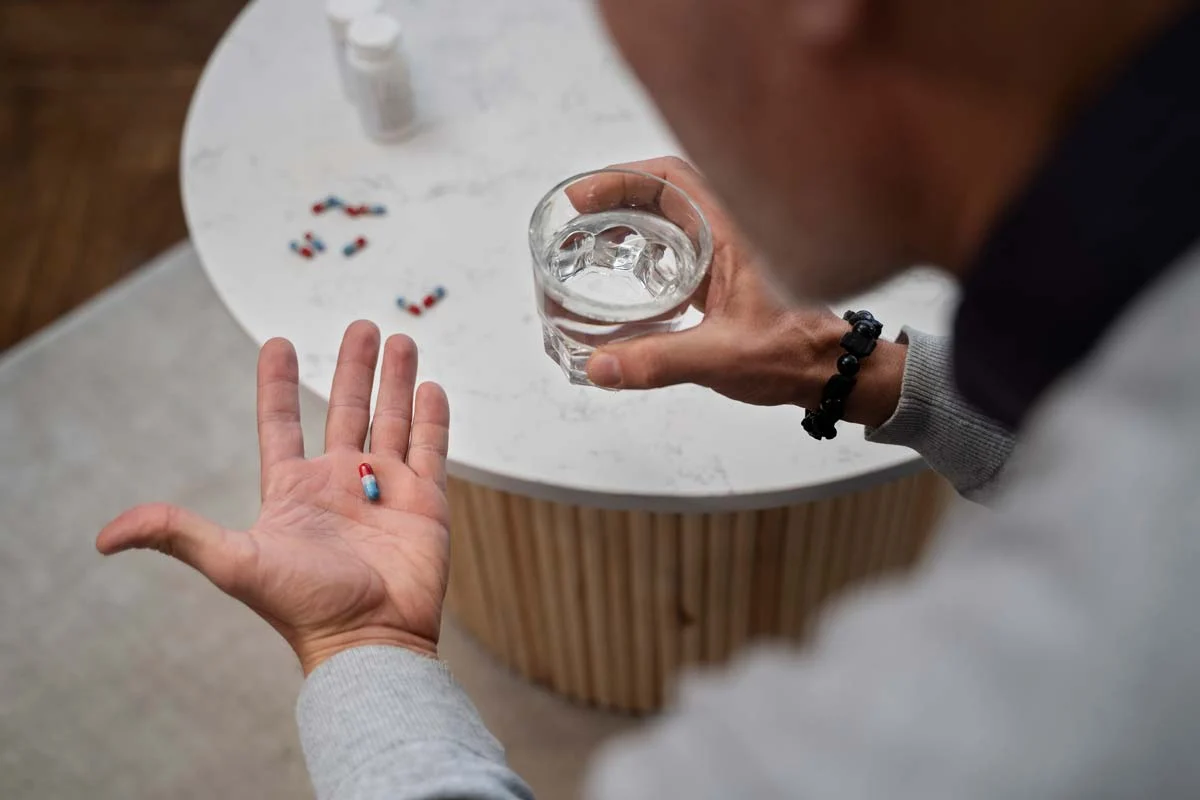 Prescription drugs have undoubtedly revolutionized modern medicine, providing relief from pain, managing chronic conditions, and improving overall quality of life for countless individuals. However, alongside their therapeutic benefits, many prescription medications carry the potential for addiction and abuse. In this comprehensive guide, we will explore the most addictive prescription drugs, their mechanisms of action, the risk factors associated with their use, and the specialized addiction treatment options available at Anchored Tides Recovery for women in Huntington Beach.
Prescription drugs have undoubtedly revolutionized modern medicine, providing relief from pain, managing chronic conditions, and improving overall quality of life for countless individuals. However, alongside their therapeutic benefits, many prescription medications carry the potential for addiction and abuse. In this comprehensive guide, we will explore the most addictive prescription drugs, their mechanisms of action, the risk factors associated with their use, and the specialized addiction treatment options available at Anchored Tides Recovery for women in Huntington Beach.
Defining Addiction and Dependency
Before delving into specific drugs, it’s crucial to understand the concepts of addiction and dependency. While often used interchangeably, they denote different aspects of substance use disorders:
- Addiction: A complex brain disorder characterized by compulsive drug seeking and use despite harmful consequences. Addiction involves psychological cravings, loss of control over drug use, and behavioral patterns centered around obtaining and using the substance.
- Dependency: Physical reliance on a drug to function normally. Dependency occurs when the body adapts to the presence of a drug, leading to tolerance (requiring higher doses for the same effect) and withdrawal symptoms upon cessation.
Factors Contributing to Prescription Drug Addiction
Several factors contribute to the addictiveness of prescription drugs:
- Chemical Composition: Drugs with potent effects on the brain’s reward system, such as opioids and benzodiazepines, are more likely to be addictive.
- Mode of Administration: Drugs that produce rapid and intense euphoria when administered via methods like injection or snorting are more prone to abuse.
- Co-occurring Disorders: Individuals with a history of substance abuse, mental health disorders, trauma, or genetic predispositions may be at higher risk for addiction.
- Social and Environmental Influences: Access to prescription medications, peer pressure, socioeconomic factors, and cultural norms can influence patterns of drug use and addiction.
Exploring the Most Addictive Prescription Drugs
- Opioids:
- Opioids are potent pain relievers that mimic the effects of natural endorphins in the brain, producing feelings of euphoria and relaxation.
- Commonly prescribed opioids include oxycodone (OxyContin), hydrocodone (Vicodin), codeine, and fentanyl.
- The opioid epidemic in the United States has highlighted the devastating consequences of opioid addiction, including overdose deaths and societal impacts.
- Strategies to address opioid addiction include opioid agonist medications (e.g., methadone, buprenorphine), behavioral therapies, and harm reduction approaches.
- Benzodiazepines:
- Benzodiazepines are central nervous system depressants prescribed for anxiety, insomnia, and seizure disorders.
- Examples include alprazolam (Xanax), diazepam (Valium), lorazepam (Ativan), and clonazepam (Klonopin).
- Benzodiazepine addiction can lead to severe withdrawal symptoms, including seizures and rebound anxiety, making detoxification challenging.
- Long-term use of benzodiazepines is associated with cognitive impairment, respiratory depression, and increased risk of accidents.
- Stimulants:
- Stimulants are medications that enhance alertness, attention, and energy levels by increasing dopamine and norepinephrine activity in the brain.
- Prescription stimulants such as amphetamine (Adderall), methylphenidate (Ritalin), and lisdexamfetamine (Vyvanse) are commonly prescribed for ADHD and narcolepsy.
- Stimulant abuse can lead to tolerance, psychosis, cardiovascular complications, and potential overdose.
- Treatment for stimulant addiction often involves behavioral therapies, cognitive-behavioral interventions, and support groups to address underlying issues contributing to substance use.
Consequences of Prescription Drug Addiction
The repercussions of prescription drug addiction extend beyond individual health to encompass societal and economic burdens:
- Health Implications: Chronic use of addictive prescription drugs can result in respiratory depression, liver damage, heart problems, infectious diseases (e.g., HIV/AIDS from needle sharing), and overdose.
- Mental Health Challenges: Co-occurring mental health disorders such as depression, anxiety, and PTSD are common among individuals struggling with prescription drug addiction, complicating treatment and recovery efforts.
- Social and Economic Costs: Addiction can strain relationships, lead to job loss, legal issues, financial instability, and homelessness, perpetuating a cycle of despair and dysfunction.
Specialized Addiction Treatment at Anchored Tides Recovery
At Anchored Tides Recovery, we recognize the unique needs of women battling prescription drug addiction. Our comprehensive treatment approach encompasses:
- Gender-Specific Care: Women may face distinct challenges in addiction recovery, including trauma, family dynamics, and societal expectations. Our gender-specific programs provide a safe and supportive environment for healing and growth.
- Holistic Therapies: We offer a range of evidence-based therapies, including individual counseling, group therapy, family therapy, mindfulness practices, and experiential therapies (e.g., art therapy, equine-assisted therapy), addressing the physical, emotional, and spiritual dimensions of recovery.
- Medical Supervision: Our medical team provides personalized detoxification services and ongoing medical support to manage withdrawal symptoms and address any underlying health issues.
- Dual Diagnosis Treatment: Many women struggling with prescription drug addiction also have co-occurring mental health disorders. Our integrated approach addresses both substance use and underlying psychiatric conditions to promote lasting recovery.
- Aftercare Support: Transitioning back to daily life after rehab can be challenging. Our aftercare programs offer continued support, relapse prevention strategies, alumni services, and connections to community resources to help women maintain sobriety and thrive in recovery.
Reach Out to Us Today
Prescription drug addiction is a complex and multifaceted issue that requires a comprehensive and compassionate approach to treatment. At Anchored Tides Recovery, we are committed to empowering women to overcome addiction, reclaim their lives, and embrace a future filled with hope and possibility. If you or a loved one is struggling with prescription drug addiction, reach out to us today to begin your journey towards recovery.
FAQs
What sets Anchored Tides Recovery apart from other rehab facilities?
Our gender-specific approach provides tailored care for women, addressing their unique needs and challenges in addiction recovery.
Do you offer medically supervised detox for prescription drug addiction?
Yes, our medical team provides 24/7 supervision and support during the detox process to ensure safety and comfort.
How long does the addiction treatment program at Anchored Tides Recovery last?
Treatment duration varies based on individual needs, but our programs typically range from 30 to 90 days, with options for extended care and aftercare support.
Do you accept insurance for addiction treatment services?
Yes, we work with many insurance providers to make rehabilitation accessible and affordable for our clients. Contact us to verify your insurance coverage.
What types of therapies are offered at Anchored Tides Recovery?
We offer a diverse range of evidence-based therapies, including cognitive-behavioral therapy (CBT), dialectical behavior therapy (DBT), trauma-informed care, mindfulness practices, and holistic therapies to address the physical, emotional, and spiritual aspects of recovery.































